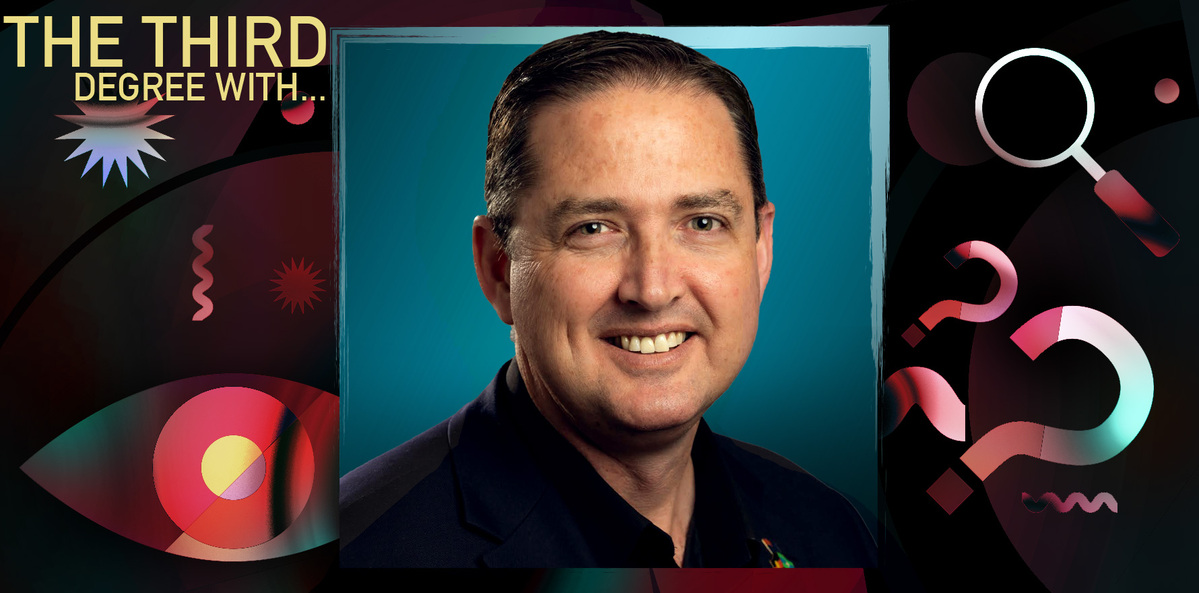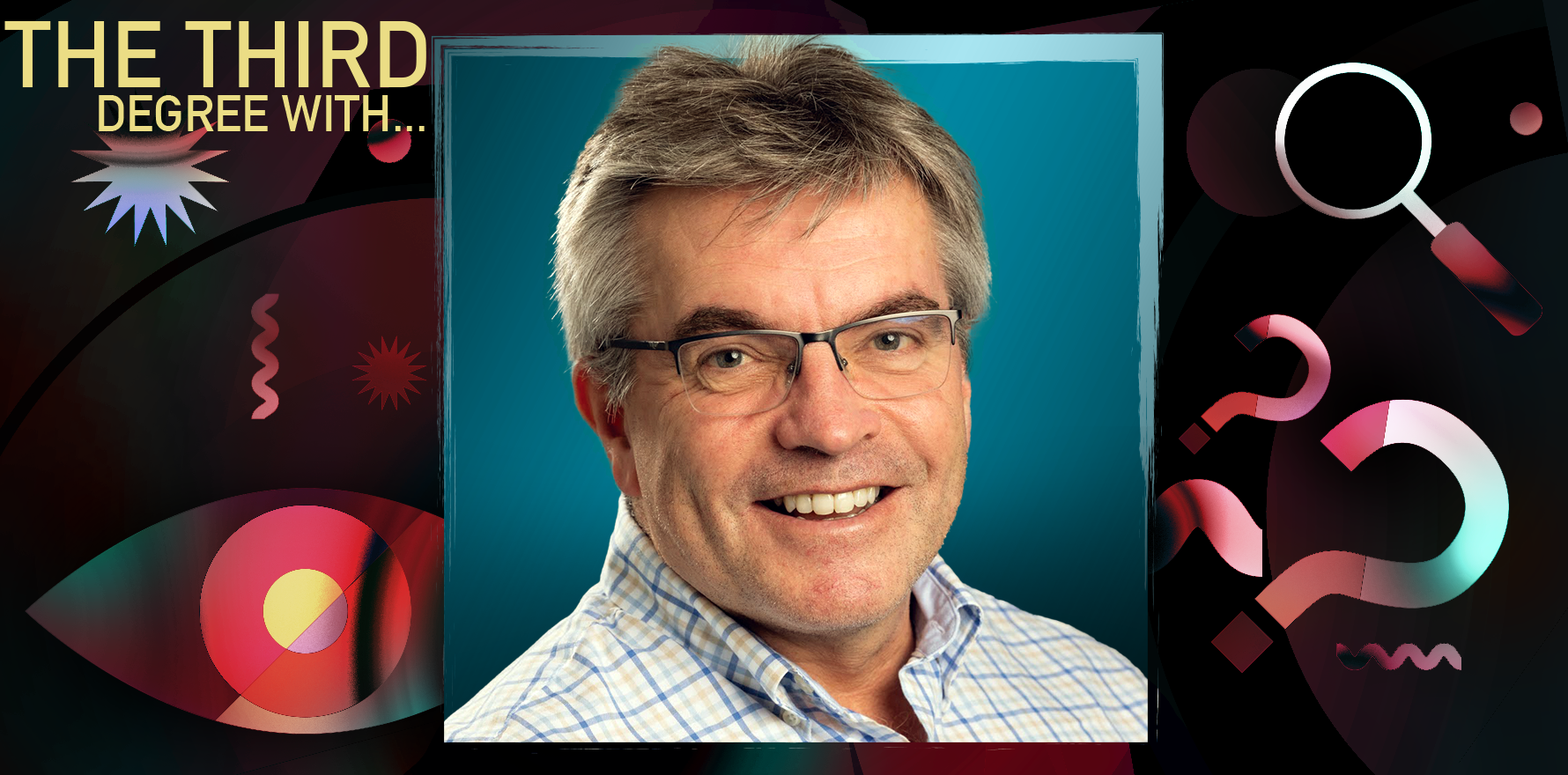The outgoing ACRRM president chatted specialist recognition, workforce and wine.
Rural generalism could become an official specialty by early 2025, according to outgoing ACRRM president Associate Professor Dan Halliday.
When specialist recognition arrives, it will be the culmination of about a decade’s worth of advocacy from the smaller college, which has included a six-year application process.
It has been one year since the Australian Medical Council officially went to public consultation, and it has not released an update.
Speaking at the joint ACRRM-RDAA conference, Rural Medicine Australia, earlier this week, Professor Halliday assured delegates that a final decision was imminent.
He sat down with The Medical Republic on Thursday afternoon, before handing over the president role to Dr Rod Martin on Friday morning.
TMR: What are you doing for the last 12-ish hours as ACRRM president?
Professor Halliday: I’m finishing the rest of the day with representational work, and we go into our AGM tomorrow morning after our [conference] workforce breakfast session.
I have a panel on that, which will be a really nice way to finish the two years [as president], because workforce has a significant tie-in in terms of the training and support services that we offer for our members.
We support the future workforce through students, but also registrars and, of course, our fellows and practices as well.
One of the biggest and most immediate events coming into your presidency was the transition back to college-led training. How has that landscape changed over the last two years?
There’s been some really interesting changes in terms of the opportunities that are out there.
We recognise the fact that there’s been significant issues in terms of general practice viability and the equity proposition that we have for trainees when they come into general practice and fellow.
[And that is] in terms of the value of their practice when they fellow, the sustainability of that in terms of their remuneration and the non-remuneration value that is tied to fellowship.
There have been some opportunities which have been presented in regards to the tripling of the bulk billing incentive, which gives a targeted response to that issue.
That rural generalists will be seen as consultants in rural medicine through the general practice specialty is a key component [in shoring up non-remuneration value].
To paraphrase the health minister, there’s a lot of “green shoots”.
The challenges are to ensure that those gains are supported and continue to be supported.
We’ve seen over 360 registrars commencing training across Australia through the ACRRM program this year.
We’ve seen. through the Medical Deans’ survey, 7.9% of Australian medical graduates elect rural generalist medicine as their ideal specialist area.
Is part of that down to the fact that universities have been prioritising rural-origin students and rural placements over the last five or so years, or more to do with rural generalist recognition being in the pipeline?
What we probably are seeing is a confluence of all of those issues starting to come together, and the recognition that that rural and remote medicine is a target that we need to be focusing on.
When we have the professionally responsible entities end-to-end across the training continuum, recognising the value of rural generalist medicine and general practice, that’s when we should start to get some real change.
We’re seeing that, and we need to continue to value that.
There are some areas where we need to take opportunities, though, and one of those is in the pre-vocational space.
That old chestnut, the PGPPP program, is not in its original form anymore.
We do have the John Flynn placement program, which is a placement of sorts in that space, but we do need to recognise that it isn’t in the exact format of the PGPPP.
We probably do need to identify a way to build or reinforce that pre-vocational space to capture the interest from medical school into vocational training.
But the other issue we’re also seeing is that once a registrar is fellowed, we’ve got to work out a way to keep them in practice and to keep them in rural and remote medicine.
What are the retention issues – are they professional support and continuing professional development? If so, that’s something which the college can support.
But is it the non-training, non-professional issues like work/life, balance, childcare, housing, professional equity with the other non-GP specialties?
That is a whole other area of discussion that we need to be teasing out to make sure that we are not short-changed on the investment that we’ve put in as taxpayers and as professionals and people who contribute to Australian society.
Related
At Rural Medicine Australia last year, you were hoping that rural generalist recognition would have come through by now, but it hasn’t yet. Where is it?
I quite freely admit that that last year, I was quite hopeful that we would have a resolution by this time.
We are aware, though, that the Australian Medical Council has provided a report that we believe is favourable, and that will now go through the usual processes for ratification.
We see a light on the horizon.
Once rural generalist recognition comes into play, which I would hope is early in the new year, the benefits will be amazing in terms of confirming and reinforcing all the hard work that the college has been doing to make it a reality and to provide that identified end point for our trainees to aspire to.
It will bring in industrial recognition, [new] remuneration structures, MBS access and a whole swag of opportunities which will underpin that model of practice.
One final question: what are you going to do with all your spare time? Will your winemaking venture get some love?
Over the years, I’ve certainly been caught up in rather interesting pursuits.
I haven’t felt that I could say no to a few things.
My idea was I was going to allow the next generation of leaders to come through in [my home town of] Stanthorpe, and that is still going to happen, but my plan to go locum for a while has been curtailed.
I’ll actually be taking on the Director of Medical Services role in Roma.
I’ll be doing drive-in-drive-out for the time being, to see if I fit with Roma and if Roma fits with me.
I love the opportunity that Southwest Queensland will give me in terms of creating work-life flexibility.
I’ll be able to focus on just the one thing… apart from a couple of little side projects, like my passion project, which is making Doctor’s Nose wine with my collaborating wine maker, Bent Road Winery in Ballandean.
Rural Medicine Australia 2024 was held at Darwin Convention Centre from October 24 to 26.
This interview has been edited for length and clarity.





